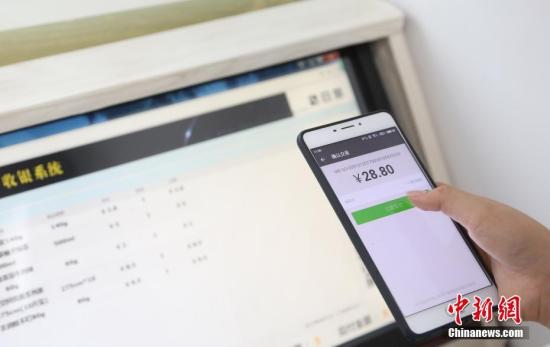Regarding "face scanning", "code scanning" and "game equipment" How does the Civil Code regulate "digital life"?
China News Service, Beijing, January 1 (Reporter Liang Xiaohui) "Behind scanning codes and swiping faces, how can personal information be regulated?" "Is the equipment in the game considered virtual property?" "Can my'huabei' be inherited? As a 21st century "digital era" code, the implemented civil code regulates some scenes of "digital life".
Sun Xianzhong, a member of the Constitution and Law Committee of the National People's Congress and an authoritative expert who participated in the entire process of civil code legislation, pointed out in an exclusive interview with China News Agency that the relevant provisions of the Civil Code "reveal a future."
Sun Xianzhong, a member of the Constitution and Law Committee of the National People's Congress, and an authoritative expert who participated in the entire process of civil code legislation, accepted an exclusive interview with China News Agency "China Focus Face-to-face" for authoritative interpretation.
Photo by China News Agency reporter Zhang Xinglong
In the "Civil Rights" chapter, the Civil Code clarifies that if the law has provisions on the protection of data and network virtual property, follow those provisions.
Sun Xianzhong believes that this is a great progress in Chinese society.
He pointed out that data assets are actually real gold and silver, but they are not like banknotes in hand or transformed into real movable or real estate. They actually exist in another space, like assets on WeChat, Alipay or Are other assets.
This provision of the Civil Code is very meaningful.
"Why didn't it write it in a little more detail? We also discussed it during the legislative process, but it was difficult for everyone to reach an agreement. So we left these issues to future legal regulations." Sun Xianzhong said.
When it comes to virtual property, Sun Xianzhong said that the situation is more complicated.
Some of the virtual property may be property, but some may not be property.
Property is a real existence, such as "Huabe", it is real property.
"But for some people who play games, a big knife and spear (game equipment) may not be an asset, but only the achievements accumulated when playing (game). This can't be consumed, it may be just a spiritual hobby. So even more Make a careful distinction."
Sun Xianzhong said that we look forward to further development of these issues in future legislation.
Although China has entered the digital society, the problems in these areas cannot yet be summarized as a set of systematic rules.
"But the law can stipulate it first, which is good and reveals a future."
Sun Xianzhong pointed out that there are related regulations in the Civil Code in response to the hotly discussed daily life of the Chinese people: "Sweeping your face in ten steps and scanning the code in five steps" and the hidden personal information protection issues behind it.
Data map: Unmanned smart convenience stores are open to the public, and many customers have a fresh experience.
Photo by Jiang Tao
For example, the Civil Code has a separate chapter "Privacy and Personal Information Protection" to protect this.
It is clear that the personal information of natural persons is protected by law.
When handling personal information, the principles of lawfulness, fairness and necessity shall be followed, and excessive processing shall not be allowed.
Sun Xianzhong pointed out that we have entered the information society, and the information society is like a "double-edged sword". On the one hand, it brings great convenience to the lives of the people and on the other hand, it also increases the possibility of personal information being violated. .
"This is something I haven't met before. Both issues must be considered."
He took "face sweeping" as an example. According to the information, some people have to "face sweeping" when going to the toilet, which is unnecessary.
This involves the excessive collection of personal information.
In addition, there are improper use of information, and even sales and resale, which poses great risks to ordinary people.
“Therefore, in the process of personal information collection, control, and use, we must increase protection. The Civil Code carefully considers these situations." Sun Xianzhong further stated that the provisions of the Civil Code are consistent with the Personal Information Protection Law (draft) that has been reviewed by the Standing Committee of the National People’s Congress for the first time. ) Are closely related.
But to be honest, the Civil Code only solves the problem of legal relief after personal information is infringed. For more personal information protection, we still have to wait for the promulgation of the personal information protection law.
"In the future, we will build a big data society. Both the Civil Code and the Personal Information Protection Law (draft) stipulate that the use of personal information requires the elimination of personal characteristics, so that it is not personal information. This problem is basically solved." Sun Xianzhong said.
(Finish)

